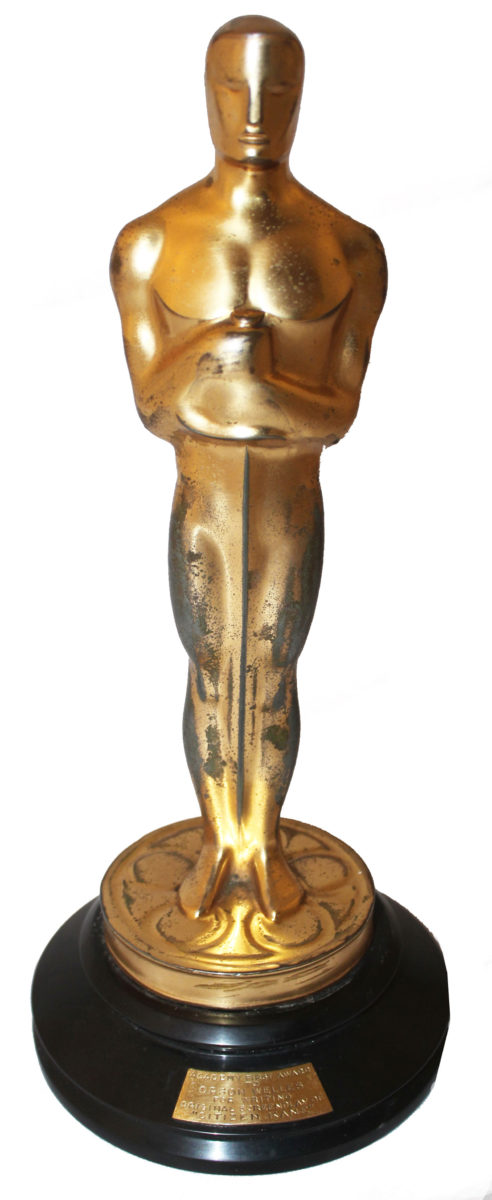
Well everyone, its Oscar season once again.
That magical time where we forfeit the loud, bullet ridden blockbusters of yesteryear and look toward the films of the serene and sombre. Where we truly recognize and appreciate the year’s best films on a grandiose scale whilst staring wistfully into the cinematic future of 2014.
Also, it’s one of the few award shows where we don’t have to guess what Miley Cyrus is going to do next. Rest assured, she cannot twerk here.
Now I know what you’re thinking: “Anthony, how am I, the humble college student, with my tight schedule of midterms and binge drinking supposed to find time for all them there films?” That’s 41 full length films and 24 categories. Fortunately, I’ve got you covered.
This is my unofficial official guide to the 86th Academy Awards—for college students.
It’s absolutely vital that you know who’s leading the race. Right now we have David O’ Russell’s American Hustle and Alfonso Cuaron’s Gravity leading with 10 nominations, both for best picture. Followed by Steve McQueen’s 12 Years a Slave with nine nominations. As much as these films are leading the pack, that doesn’t mean you need to watch them first. This isn’t me saying these are bad films compared to the rest or to ignore them altogether.
In fact, Gravity and 12 Years a Slave have contributed to the future of cinema. Gravity bringing back science fiction to the awards and 12 Years a Slave tackling human nature in a way most films are afraid to.These films have raked up a lot of press, but that doesn’t mean they require your immediate attention because they have everyone else’s.
Let’s drift down the line to the lesser known best picture nominees. Spike Jonze’s Her stands as one of the most poignant films in recent years, with Jonze’s script tackling modern relationships. Hands down, Her is walking away with best original screenplay. Alexander Payne’s Nebraska is on an entirely different spectrum. It’s a film nobody seems to know about, let alone its place as a best picture nominee. It reminds us films don’t necessarily need heavy special effects or tackle some controversial issue in order to tell a story.
Let’s keep in mind, Saving Mr. Banks and Bad Grandpa are tied for nominations. I know what you’re thinking, Bad Grandpa was nominated for something? It wasn’t that bad. It does have Johnny Knoxville stuffing latex genitalia into a vending machine, but it’s safe to say that nominations don’t make a film, despite what the Oscars are trying to convince us.
But, what you’re really going to want to look out for is the foreign language category. These films are doing this interesting thing where they’re actually good. Really good. Foreign language cinema strives to enforce heavier themes into their storytelling, whereas Hollywood uses the same formula and refuses to venture out of it because they’re not sure how people will take it.
Thomas Vinterberg’s The Hunt, a harrowing drama of a teacher wrongly accused of sexually assaulting a child may stand as one of the year’s best films. Follow that up with Felix Van Groeningen’s The Broken Circle Breakdown, which, despite it being a slower film, mixes brilliant cinematography with an almost flawless soundtrack.
So, who was snubbed entirely? Everyone knows the age old saying, “If the Academy Awards ignored them completely, then it was probably good.” This category allows you to ask questions that will either be met with a heated debate or ignored entirely. Here’s a couple to get you started:
“Why was Tom Hanks snubbed for both Saving Mr. Banks and Captain Phillips?”
“Boy, James Gandolfini’s performance in Enough Said was great. Where is it?”
“I guess everyone had their eyes closed every time Daniel Bruhl was on-screen during Rush.”
“What’s Bad Grandpa doing there?”
It does appear that you have quite the number of films to watch, so do try to catch up.
I’ll see you March 2. Wear something nice.

